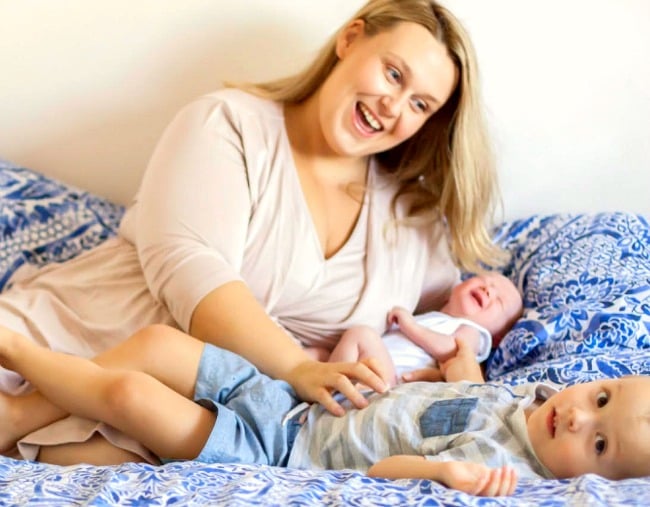
I have an eight-week-old baby and a three-year-old son, and my obsession with screen time was ruining our lives.
At various times since my first child was born, I had introduced a relatively screen-free lifestyle. We’ve gone for months at a time without my son having any access to a screen at all.
We’ve also had periods of time where we have had excessive exposure to screens; where breakfast, lunch and dinner have all been consumed with a side dish of YouTube.
In the first couple of weeks after our baby was born, the three-year-old spent a lot of time snuggled with us watching movies, or playing at our feet accompanied by the iPad. Initially, I was accepting of this.
I had a new baby, I was recovering from a C-section, and my husband had come down with a virus that meant he wasn’t in a position to provide a great deal of support.
So I let the screen thing happen, and we all relaxed into the adjustment to becoming a family of four.
Then, as all started to return to life as we knew it, the screen time exposure naturally started to reduce. We began returning to our regular activities, I began to feel more confident going out and about with a newborn and a three-year-old, and we found ourselves using the screens less than we had been in the earliest days – but still more than we had before baby arrived.
One night, I started reading articles online that talked about the dangers of screen time exposure. About the importance of having our children outside, engaged in the natural environment, for hours every day. And I started to worry that maybe our screen time was doing damage to our kids.


Top Comments
I remember that when I was a kid, it was all about how watching too much TV would ruin kids’ lives. My sister and I watched HEAPS of TV. Neither of us are obese, we did well at school and we turned out fine. We also developed a love of stories - the cartoons and movies fired up our imaginations.
That said... it’s not screen time that worries me but computer game addiction. My ex-husband was effectively a computer game addict and would stay up all night playing with a bright screen in a dark room, and it was all he wanted to do on weekends - and he was in his mid 20s. That concerns me and I’m not keen on my kids getting into gaming. Or social media. Watching movies or playing educational iPad games? Not so much.
We have never set a limit on screen time - it's just one of the things to do and we don't make a big deal of it. As a result, our two boys have grown up with a 'take it or leave it' attitude, whereas their peers, in my experience, tend to fixate on their allocated x minutes a day - when they're not watching, they're thinking about what they'll be watching. However, I think it's a case of forbidden fruit tasting sweetest - we have no weapons and the pressure for a nerf gun is intense!